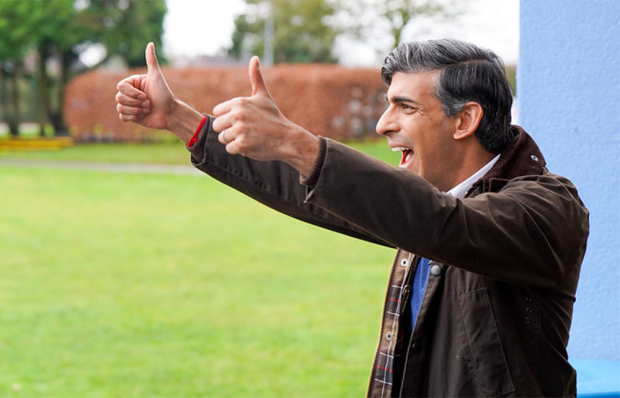Wisdom of crowds
Sir: According to Matthew Parris (‘Can we trust the people?’ 12 November), I have become part of the mob. Nevertheless, I have never really thought of myself in that way. Although it may be reasonable to criticise the antics of Farage or Trump, surely it is wrong to characterise all those who voted for their causes as a mob? My motives in voting for Brexit were simple and reasonable. Many of my generation — who lived as children through the 1940s when our parents went to war to preserve our sovereignty, our justice system and control of our borders — voted to leave the EU because they saw these three vital powers slipping away into the hands of an unelected bunch of bureaucrats.
The mob which Parris describes in America are people whose livelihoods have been devastated by the globalisation of trade, which has enriched big business. Their votes were against the status quo (Hillary Clinton) and in favour of change.
Sadly it appears that Parris is joining the ranks of an elite who not only are unable to accept the will of the people, but whose detachment from their rationale leads him to think them a mob that might endanger democracy. He should think again.
Brian Thornton
Malvern, Worcestershire
Please don’t fix it
Sir: Matthew Parris’s view that the ‘procedures’ need to be reformed to avoid killing our faith in democracy is both arrogant and wrong. Brexit and the election of Donald Trump clearly strike much of the electorate as clear signs that, for once, their views did count. Whether I or anyone else agree with their views, changing the rules so the masses cannot change how nations are governed will lead them to conclude that democracy no longer works for them. Other routes to achieving their desired outcomes involve violence and lawlessness. The people have spoken. We ignore them at our peril.
Jonathan Little
Penshurst, Kent
Friends over the Falklands
Sir: I normally agree with most of what Rod Liddle says, but I must challenge his implication that the special relationship did nothing for Britain during the Falklands war (‘Trump will be much, much better for Britain’, 12 November). In siding so openly with Britain as he did, President Reagan was prepared to put his entire Latin American policy in jeopardy for the sake of the special relationship. US assistance, in terms of military hardware, aircraft fuel and, above all, satellite intelligence helped ensure our victory in a conflict whose outcome was never a foregone conclusion.
The wholehearted commitment to our cause by Caspar Weinberger, who even offered us an aircraft carrier, earned the US defence secretary an honorary knighthood and Margaret Thatcher’s claim that ‘Britain never had a truer friend’.
E. MacIntosh
Darlington, Co. Durham
Glorious ignorance
Sir: Like Claire Fox (‘In defence of post-truth politics’, 12 November), I am constantly struck by the way ‘experts’ get it wrong, and how enterprising folk, along with the ‘masses’, hit the nail on the head.
What fascinates me is the glorious unpredictability of mankind. We can predict the lunar orbit to within a hairsbreadth and understand the internal chemistry of stars. Yet try to calculate beforehand the results of the EU referendum or the US election, then you might as well go and whistle. What we have here is not so much ‘post-truth’ as a ‘higher truth’ — one reflected in the patriotism and simple common sense of the ‘deplorables’. Renaissance monarchs had astrologers armed with brass astrolabes to help fathom the future. Their modern equivalents have ‘experts’ with super-computers. The results are often about the same.
Dr Allan Chapman
Wadham College, Oxford
Double issue
Sir: Your publication of an edition devoted to Donald Trump’s victory within 24 hours of the result is impressive. Did you perhaps follow the example of your former editor (now our Foreign Secretary) and prepare editions for either outcome?
David Hadden
Ardingly, West Sussex
Cheer up, me duck
Sir: May I suggest to Mrs Slade Crombie, who is upset by odd forms of address (Letters, 12 November), that it is better to accept these endearments in the spirit in which they are intended? In the north of England it is an everyday occurrence to be addressed as ‘love’, but it is always by people who only mean to be friendly. My son, who lives in Derby, has found himself occasionally addressed as ‘duck’, and although tempted to quack in response has so far managed to refrain.
Clare Johnson
Glossop, Derbyshire
Cosy fan tutte
Sir: There seems a lot of fuss about this Danish notion of homely cosiness (Mind your language, 12 November). People the world over have words that mean the same as ‘hygge’. I bet the Eskimos have 50.
June McManus
Leeds
First-name terms
Sir: I recall meeting a lady who shared Mrs Prior’s Christian name (Letters, 12 November). Holding out my hand, I gave my own name by way of introduction. A wry smile crossed her lips as she said: ‘Well this was bound to happen one day’ before giving her name as ‘Fanny’. Since then I’ve introduced myself as Richard.
Dickie Ellis
London EC4
The post Letters appeared first on The Spectator.
Got something to add? Join the discussion and comment below.
Get 10 issues for just $10
Subscribe to The Spectator Australia today for the next 10 magazine issues, plus full online access, for just $10.
You might disagree with half of it, but you’ll enjoy reading all of it. Try your first month for free, then just $2 a week for the remainder of your first year.













Comments
Don't miss out
Join the conversation with other Spectator Australia readers. Subscribe to leave a comment.
SUBSCRIBEAlready a subscriber? Log in